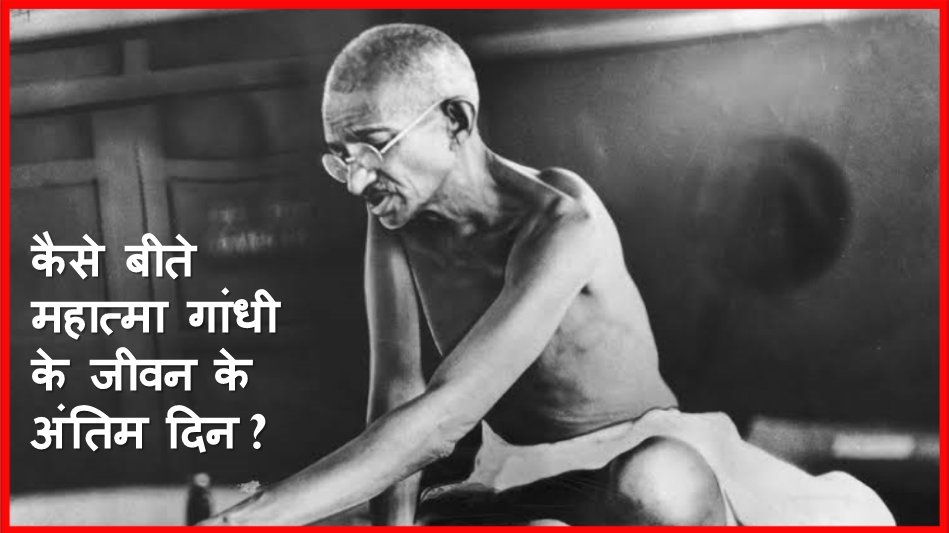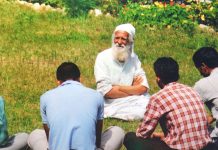On October 2 an increasingly divided and troubled world observes the birth anniversary of Mahatma Gandhi (MG). This is a good time to reflect on the essence of some of his enduring messages.
Firstly, he said that economics should never be separated from ethics. In particular he gave a call for placing the poorer and weaker sections at the center of decision making and, in a statement that has been widely quoted since then, told policy makers that whenever they are confused regarding policy-choice, they should examine the question from the perspective of its impact on the poor and decide on the basis of what will most help/ empower the weak and the deprived. This thinking is also reflected in his views on mechanization and technology as he clearly declared, at the risk of being ridiculed, that in a country like India where so many people had been already unemployed by highly unjust colonial policies, he was prepared to emphasize protection of labor-intensive technologies in several lines of work (for example hand spinning and weaving), along with the special skills these involved, regardless of the easy availability of heavy machines for this work. He called upon consumers to support these hand-made goods and built up a huge market for these by his tireless efforts, a market which still exists, helped much by the linkage it has with the work and ideas of MG. In agriculture this thinking is reflected in his support for low-cost, self-reliant, organic, soil protecting methods which, as has been increasingly realized now, also help in climate change adaptation and mitigation.
This brings us to his essential message which is actually at the root of protecting environment, although MG had the wisdom to give this message even before the environmental crisis had become such a big issue. This message is of limiting human consumption, of voluntary simplicity in life style choices. MG continued to experiment with this in various experiments of community living. Once this voluntary frugality is accepted as an ideal of daily life patterns and choice of food, clothing, housing, furnishing etc. is based on simplicity instead rather than greed, grandeur or ‘more and more’, this becomes a very important value that enhances humanity’s ability to live in sustainable ways without disrupting earth systems. People living this way have much less reason to be either discontented or dominating, excessively ambitious and careerist; they also get more time and space to devote to the higher aim of life of creating a better world.
Hence unlike the present-day highly reductionist thinking on environmental issues Mahatma Gandhi provided a holistic view based on the entire life pattern being simple and frugal, placing the least burden on nature. This, together with his ethical economics based on a deeply caring attitude towards weaker sections, provides for equality and simplicity to be the base of any society.
Equality and simplicity also provide very conducive conditions for peace and non-violence. MG saw non-violence as an all encompassing part of life, a way of thinking, which helps greatly to improve social relationships, to reduce widespread and very distressing problems like domestic violence, child abuse, bullying and identity-based violence. At the same time this helps to create a base for peace in world, which increases the chances of creating a world without wars and a war without the most terribly destructive weapons. Non-violence forms of opposing any injustice is something to which MG devoted his entire life.
Today we have a heavily demarcated way of thinking, researching and finding solutions and so we spend a lot of effort and resources for finding solutions separately of many problems with their roots in widespread tendencies of violence and dominance. MG’s thinking and worldview offer a different approach of a way of life rooted in non-dominance and non-violence, as well as self-training and training for this, which can reduce these painful social problems very significantly.
MG was able to mobilize millions of people for non-violent movements against injustices of colonial rule time and again. There were both successes to celebrate and mistakes to learn from in these struggles. What made the freedom movement successes bigger was the ability to add many constructive activities to these, and to prepare a wider base for more equality and justice based changes to follow. No less remarkable is the fact that the legacy of Gandhi lives on 74 years after his death in numerous big and small non-violent struggles for justice which are inspired by him and draw strength from him.
At a time when the world needs prolonged peace, stability and international cooperation to resolve unprecedented environmental problems which according to most senior scientists are already serious enough to endanger the basic life nurturing conditions of earth, we need more than ever before messages of healing which can help and guide us to seek deeper and more comprehensive as well as sustained solutions—beyond technological and short-term fixes—and the ideas and work of MG are particularly relevant and important in this context.
Bharat Dogra is Honorary Convener, Campaign to Save Earth Now. His recent books include Man over Machine, Planet in Peril and Protecting Earth for Children.










